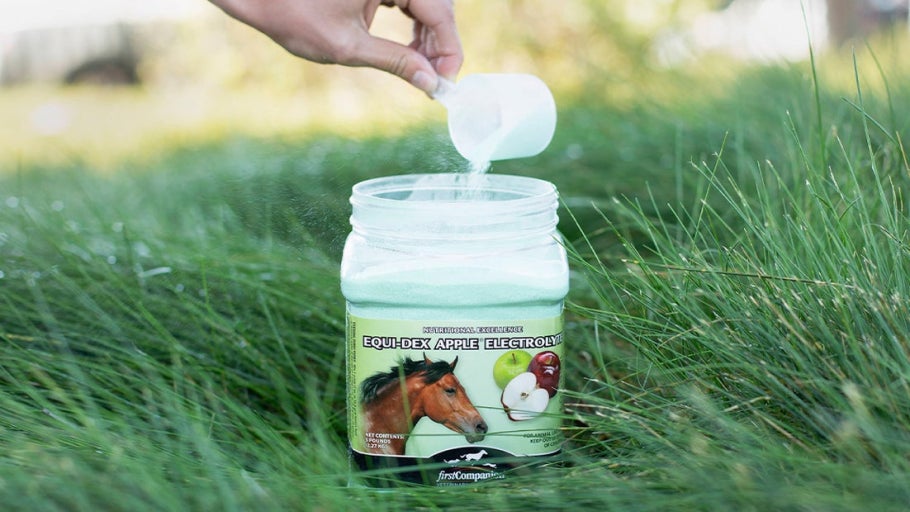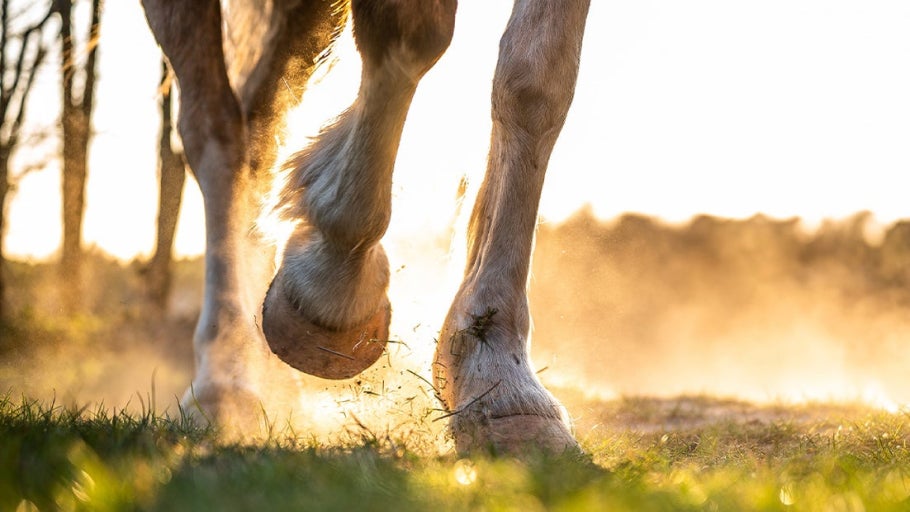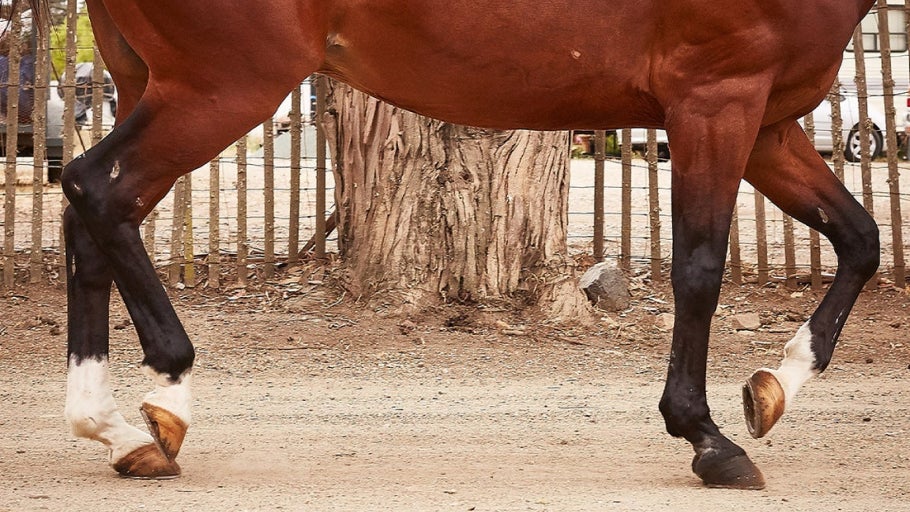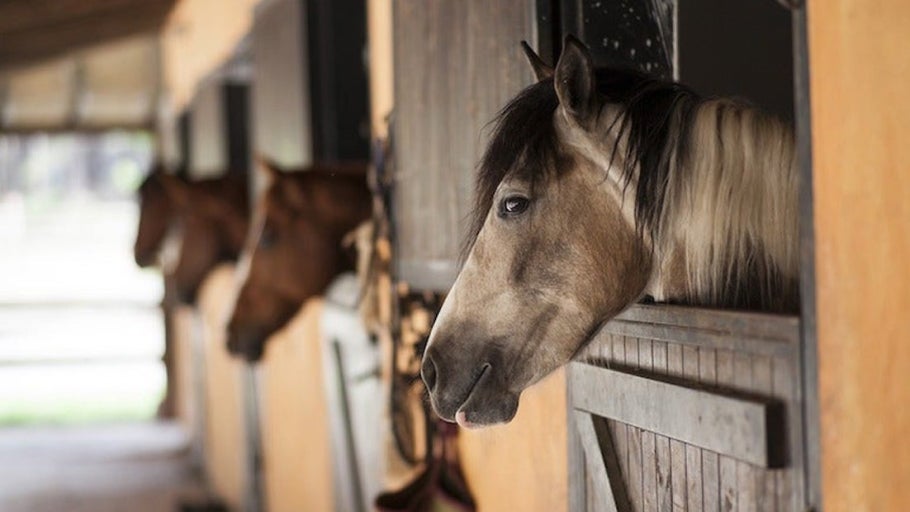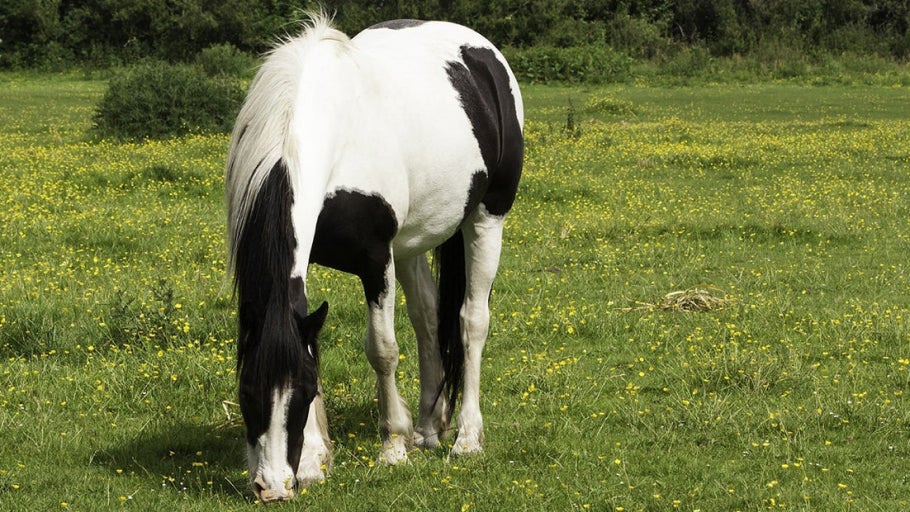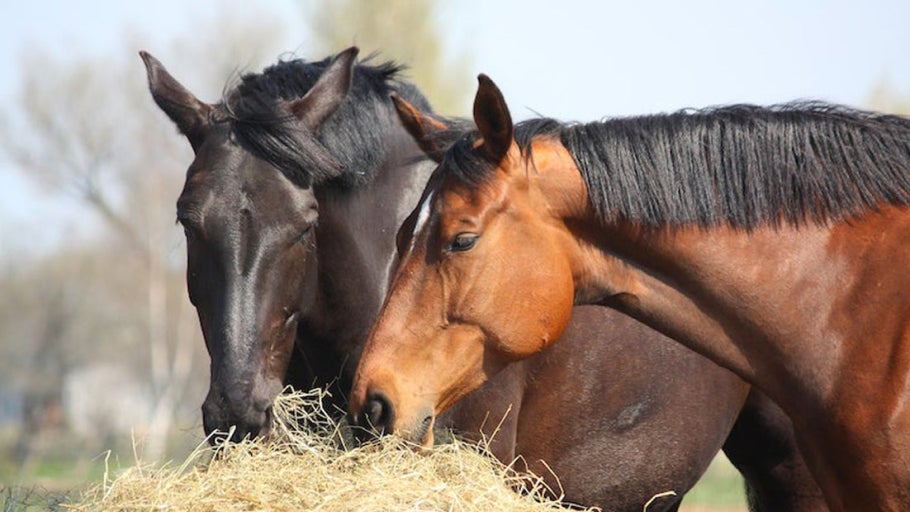
The Scoop on Equine Weight Gain Supplements
While some horses are "easy keepers" that seem to gain weight overnight, others can be more challenging to keep in good condition. You may have a horse that will eat anything you put in front of them, but their ribs always seem to show! Some horses might have a fast metabolism or nervous habits that cause them to sweat the weight right off. These "hard keepers" never have quite the right weight, and they might be averse to eating all of the time from your efforts to try to keep weight on them. This is where a weight gain supplement can come in handy! We need to keep an eye on our horse's diet to ensure their nutrient intake doesn't begin to have negative health effects.
If your hard keeper is waiting for you to succumb to feeding an excess of grain or a tastier forage, your job as your horse's caretaker clearly becomes much more difficult. If only there was something you could feed to make them magically put on the pounds... Oh wait, there is! It's not magic but equine science. In this edition of The Scoop on Supplements, we will help explain the science behind weight gain supplements and answer a few frequently asked questions!
Factors to Consider with Supplementation
Before jumping straight to a diet change, it is important to understand how your horse's body works on its own, without supplementation. Based on activity level, genetic predisposition, maintenance, and more, your horse could react differently than other horses in response to certain feeds and supplements. Listed below are important factors we encourage you to consider discussing with your veterinarian, as they all can impact your horse's body condition:
- Diet and Feed Quality: Your horse's diet is something you've already thought about if you're considering a supplement, but it's a good topic to discuss with your vet. It is important to make sure your horse is getting the appropriate nutrients they need for their age and workload. You should also consider the quality of feed your horse is consuming. Similar to quality, the type of feed can affect your horse's body condition. Different hay and grain types offer varying amounts of nutrients, and your vet can direct you to something missing (or in excess) in their diet.
- Gastric Ulcers: Stomach ulcers may affect 60% or more of performance horses, but even non-performance horses and foals are susceptible. Gastric ulcers are often caused by stress, changing feed or a grain-heavy diet, and rigorous exercise. Ulcers can affect how well your horse can absorb nutrients from food and negatively impact their weight. If you have any concerns about the possible presence of ulcers in your horse, reach out to your vet. If your horse already has or is susceptible to ulcers, it's a good idea to hold off on supplement changes or incorporate them slowly.
- Worms and Parasites: Even if you regularly deworm your horse, it's a good idea to have your vet perform a fecal egg count if you are concerned about their body condition. Worms and parasites are born to be sneaky, and it's important to evict them once they've found a home! If your horse has worms or parasites, they cannot absorb nutrients efficiently and may render the supplements you're feeding them useless. For further information on deworming, we encourage you to check out our guide on The Basics of Horse Deworming!
- Dental Issues: If your horse has an issue with their teeth, they are likely unable to chew food effectively. It's highly recommended to get your horse's teeth checked annually. If you have an older horse that has lost teeth, or one with *unique* teeth, they might require a special diet; this could be anything from soaked feeds with so much liquid that it's basically soup, or chopped hay that's easier to chew.
- Age: As horses get older, they often have a harder time staying limber (despite a clean bill of health otherwise). If your horse is approaching their senior years, they may need some additional support to keep them nimble.
- Other Health Conditions: While less common, other health issues can be the cause of weight loss. These include respiratory issues, anemia, chronic infections, and more. If you have concerns about any other health conditions you should contact your vet ASAP!
Healthy Calories for Horse Weight Gain
Why do weight gain supplements work? It's not just a matter of adding calories but adding nutritionally dense calories. For example, you could feed your horse tons and tons of forage or endless amounts of cookies in hopes of fattening them up. Your equine will probably get fatter, but it will also mean their sugar/carbohydrate levels have skyrocketed; this could create other health problems that weren't originally an issue to begin with.
Instead, we want to give our horses feed containing increased fat and protein levels. Fat can be stored in the horse's body and used as energy later. Protein works similarly and can be broken up for immediate energy or used in muscle growth. Carbohydrates/sugars are still important in a horse's diet and should not be forgotten. While too much sugar can be an issue, too little sugar (though unlikely) is also a no-go! The main component of a horse's diet should be forage and fiber. For more information, we encourage reading this article on caring for the underweight horse by the University of Minnesota Extension.
Weight Gain Building Blocks
Fats:
Fats are an easy way to provide extra calories in a concentrated form. Fats can be added to the diet through oils top-dressed onto grain, or through powders like ground flaxseed or soybean meal. Supplementing with fats typically won't make a horse hot with excessive energy, and they have the additional benefits of supporting healthy skin and a shiny coat.
Amino Acids and Protein:
Amino acids, such as lysine and methionine, are the building blocks of protein that help to build and maintain muscle. Supplementing with amino acids can be helpful if you have a performance horse, since the majority of training is designed to make your horse stronger with more muscle. Protein cannot be stored for later energy use, as it is either broken up immediately and used for energy or used for musculature needs.
Grains and Starches:
Grains such as oats, corn, and concentrated feeds can provide an extra source of calories. However, because grains move quickly through the digestive system, the nutrients may not be fully broken down and absorbed. Grains and starches also have the potential to make horses hot, which essentially translates to a sugar rush in humans. This may not be ideal depending on your horse's discipline and workload, as well as your riding capabilities.
Frequently Asked Questions
What can I feed my horse to gain weight?
Start with increasing their hay or forage allotment. You can also add a higher-quality hay or a different hay type like alfalfa, which is higher in protein than other hays. Then either add grain to your horse's diet or switch to a grain with higher fat and protein levels if you already feed one. Next, you can add high-fat supplements if needed in an oil, pellet, powder, or meal form. Grain or supplements that are higher in fats will add pounds to a horse, given that there aren't any underlying health issues causing the horse to be underweight (i.e., parasites).
What is the cheapest way to add fat to a horse's diet?
Adding oil! Easy to dress on top of grain, common vegetable oil is a good source of fat that won't break the bank. Other options include feeding grain with a higher fat content itself and/or feeding a weight gain supplement. While these options can be easier for caregivers due to their 'one and done' nature, they will cost more.
Does sugar, fat, and protein amount matter?
Yes! If you have a performance horse, a proper diet is what allows them to grow muscle and stay fit for strenuous activity. On the other end of the spectrum, horses who aren't working typically need fewer calories to maintain a healthy weight. Note that having an excess amount of sugar in an 'at risk' horse's diet can lead to laminitis and founder. For more information, check out our article on preventing and treating laminitis!
How do you put weight on a horse's top line?
The horse's top line is developed with muscle growth from correct training and exercise. Hoping they gain fat along their top line might look like a muscled horse, but in reality, it means that your horse is likely overweight. To gain muscle along their top line, horses need an appropriate diet with sufficient amounts of protein, fats, and carbohydrates in conjunction with muscle-building activities and training.
What do you feed to an overweight horse?
Forage is ideal for any horse, especially those overweight. Introducing a slow feeder can help make their meal last longer and increase chewing time to better break down feed. If your horse is overweight due to a metabolic problem or other auxiliary factor, you should talk to your vet about further actions you can take.
Why won't my horse put on weight?
If you have tried changing your horse's diet and there is still no fluctuation in their weight, make sure you have considered and addressed your horse's teeth, gut health, age, and other auxiliary health conditions. If you have any concerns regarding your horse's health and well-being, you should contact your vet right away.
Closing Thoughts
While there are equine nutritionists, we are not one of them; we highly suggest you consult one for additional information! The resources are out there to help us properly feed our horses, so they can function and perform at their highest. Paying attention to your horse's body condition and getting them regularly checked, such as through fecal tests and dental care, can help prevent weight issues before they happen (and are important to stay on top of no matter what).
While there is no perfect weight gain supplement, there are many options that can help your horse feel and look their best! If you have any questions regarding your specific horse's diet and health, we strongly suggest that you reach out to your vet or an equine nutritionist. For questions regarding supplement products, please contact our customer service by calling 1(800)620-9145 or by emailing info@ridingwarehouse.com. Happy riding!
Further Reading
We understand that you may want to do more research on horse diet/nutrition and its related conditions. That's why we compiled some great sources below, so you can take a deeper dive!
- American Association of Equine Practitioners on Gastric Ulcers
- University of Minnesota on Equine Body Condition and Nutrition
- University of Minnesota on Caring for an Overweight Horse
- Kentucky Equine Research on Ways to Put Weight on a Skinny Horse
- Kentucky Equine Research on Horses Eating Well But Losing Weight
Related Articles

